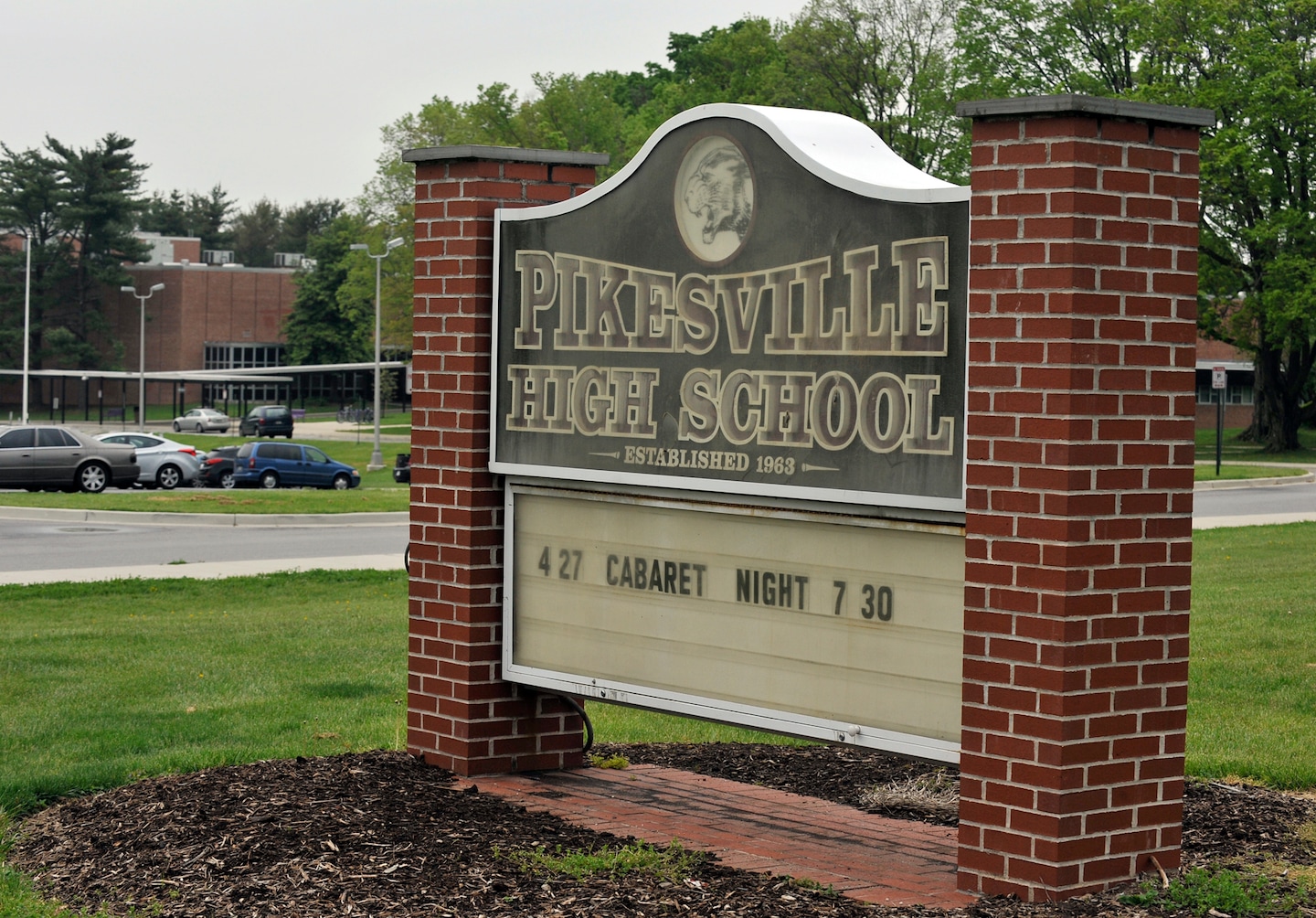
Baltimore principal’s racist rant was an AI fake. His colleague was arrested.
- Science
- April 26, 2024
- No Comment
- 144
But the recording was not what it seemed, according to Baltimore County police. A school employee, investigators charged Thursday, had used artificial intelligence tools to fabricate the audio with the intention of falsely depicting the principal, Eric Eiswert, as bigoted and antisemitic.
The employee, Dazhon Darien, 31, the former athletic director at Pikesville High School, was taken into custody at BWI Airport Thursday as he was about to fly to Houston. Airport security, after detaining Darien because he was carrying a firearm, discovered that a judge had just issued a warrant for his arrest in the AI case.
Darien, in a text message, declined comment Friday and referred questions to an attorney who was not immediately available. He was released on a $5,000 bond at a hearing Thursday where he was charged with disrupting school activities, retaliating against a witness, stalking and theft, according to court records.
Eiswert did not respond to a message seeking comment.
The case has drawn attention far beyond Baltimore County, raising fresh concerns about easily accessible AI tools that can allow users, with only a few seconds of real audio footage, to create believable clones of politicians, celebrities and ordinary citizens.
“Anyone can create these types of deepfakes, spread them online, and very quickly and effortlessly wreak havoc on a person’s life,” said Hany Farid, a computer science professor at the University of California at Berkeley who said Baltimore County police consulted him on the case. Referring to the Baltimore incident, he said, “It certainly won’t be the last.”
Darien’s arrest is another reminder that the public should not “accept what you see on the internet for face value,” said Richard Forno, assistant director of the Center for Cybersecurity at the University of Maryland, Baltimore County. “It may not be real. It’s becoming harder to trust your eyes and ears. You have to think critically before you retweet.”
Investigators seeking to press charges for these types of cybercrimes are often stymied by limited legal mechanisms, AI and legal experts said. Scott Schellenberger, the Baltimore County State’s Attorney whose office is prosecuting Darien, said the case “has demonstrated that we may need to pass new laws.”
“We were trying very hard to find additional things he can be charged with and we didn’t have enough specific statutes,” Schellenberger said in a telephone interview. “This is a new area with AI and it’s a new abuse of AI and we’re going to have to create new laws to deal with this situation in order to prevent people from wanting to do this and to punish those who have done it.”
The recording became a viral sensation when an Instagram user posted it Jan. 17, triggering calls for Eiswert’s ouster, infuriating students and parents, and thrusting the school district into a crisis that drew nationwide attention.
“World would be a better place if you were on the other side of the dirt,” a commenter wrote on Eiswert’s social media account after the recording’s release and before it was clear it was fake, according to investigators. The recording prompted police to station officers outside Eiswert’s home as a security precaution, and led school officials to call in counselors to talk to students and staff.
DeRay Mckesson, a civil rights activist who said he was a former student of Eiswert, was among those who initially demanded the principal’s firing. “I am in no way surprised by his comments in this recording,” Mckesson wrote on X, where he has 932,000 followers, adding that Eiswert’s “teaching and administrator licenses should be permanently revoked.”
After Darien’s arrest, Mckesson wrote on X: “This is a vile thing to do. And I was wrong, as I thought the recording could have been true.”
There were also those who said from the start that they did not believe the recording was authentic, including the assistant principal to whom Eiswert was purported to have made the remarks, who told investigators that “she thought she had never had the conversation” and that it “does not sound like anything she had observed from” him.
Billy Burke, executive director of the Council of Administrative and Supervisory Employees, the union representing principals and other public school managers in Baltimore County, also expressed doubt about the authenticity of the recording soon after its release. “I hope we can find the lessons amid the damage that this has caused,” Burke said in a statement after Darien’s arrest. “I hope we learn people are innocent until proven guilty.”
After the recording’s release, Eiswert, in a public statement, denied making the remarks, which included that he was seeking to get Darien’s “Black a–” removed from the school “one way or another. I’m gonna get something to stick.” On the recording, the faked voice of Eiswert also complained about getting “one more complaint from one more Jew.”
Before the recording’s release, Eiswert had been involved in a dispute with Darien that centered around a $1,916 payment the athletic director had authorized to another school employee who also was his roommate, according to the charging document. Eiswert alleged that Darien had made the payment without seeking the appropriate approvals.
During their investigation of the recording, police interviewed Eiswert, who told them he believed Darien had fabricated the recording, according to a police charging document. He also told an investigators that he had not wanted to renew Darien’s contract because of “frequent work performance challenges.”
Tracing the genesis of the recording, investigators determined that it had been sent by email to three school employees, including Darien, the day before it ended up on Instagram. One of those employees, who is not identified in the charging document, told police that she sent the recording to a student “who she knew would rapidly spread the message around various social media sites and throughout the school.” The employee also told investigators she sent the message to news outlets and the NAACP.
Darien, during an interview with police, denied any connection to the “recording’s existence and release” and said he did not know the person who had emailed him the recording, according to the charging document. But police, after subpoenaing Google, were able to link the email account to Darien.
As part of their investigation, police asked a University of Colorado forensic analyst who has worked with the FBI to listen to the recording. The analyst, according to the charging document, concluded that the “recording contained traces of AI-generated content with human editing after the fact, which added background noises for realism.”
Farid said he was the second forensic expert identified in the charging document who is quoted as telling investigators that the “recording was manipulated and multiple recordings were spliced together.”
Investigators said they determined that Darien had a paid account for OpenAI tools, which makes ChatGPT and image generator Dall-E. But it is unclear what specific service was used to make the AI-generated audio clone.
The incident is one of several high-profile domestic cases where AI audio deepfakes have caused havoc. In January, a Democratic political operative faked President Biden’s voice to urge New Hampshire primary voters to not go to the polls — a stunt intended to draw awareness to the problems with the medium that resulted in a state investigation. The probe is still ongoing, according to New Hampshire deputy attorney general James Boffetti, with no criminal charges levied yet.
The Baltimore arrest is of interest, legal experts said, because there is little precedent for criminal cases involving AI-generated deepfakes. No federal deepfake law exists, and while more than three dozen state legislatures are pushing ahead on AI bills, proposals governing deepfakes are largely limited to political ads and nonconsensual porn.
Tamarin Lindenberg, founder of the Lindenberg Law Group, said a noteworthy aspect of the Baltimore case is that the alleged perpetrator isn’t a shadowy, anonymous cyber network, but a co-worker. “The abusers are not who you think they are,” she said. “This is a colleague, this is someone else in the school.”
Farid said these cases won’t stop anytime soon, given the rise in accessible and high-quality voice cloning tools. “Now that commercial applications for voice cloning … are available to anyone at little to no cost,” he said, “I expect we will see more incidents like this.”
Gerrit De Vynck contributed to this report.
#Baltimore #principals #racist #rant #fake #colleague #arrested









